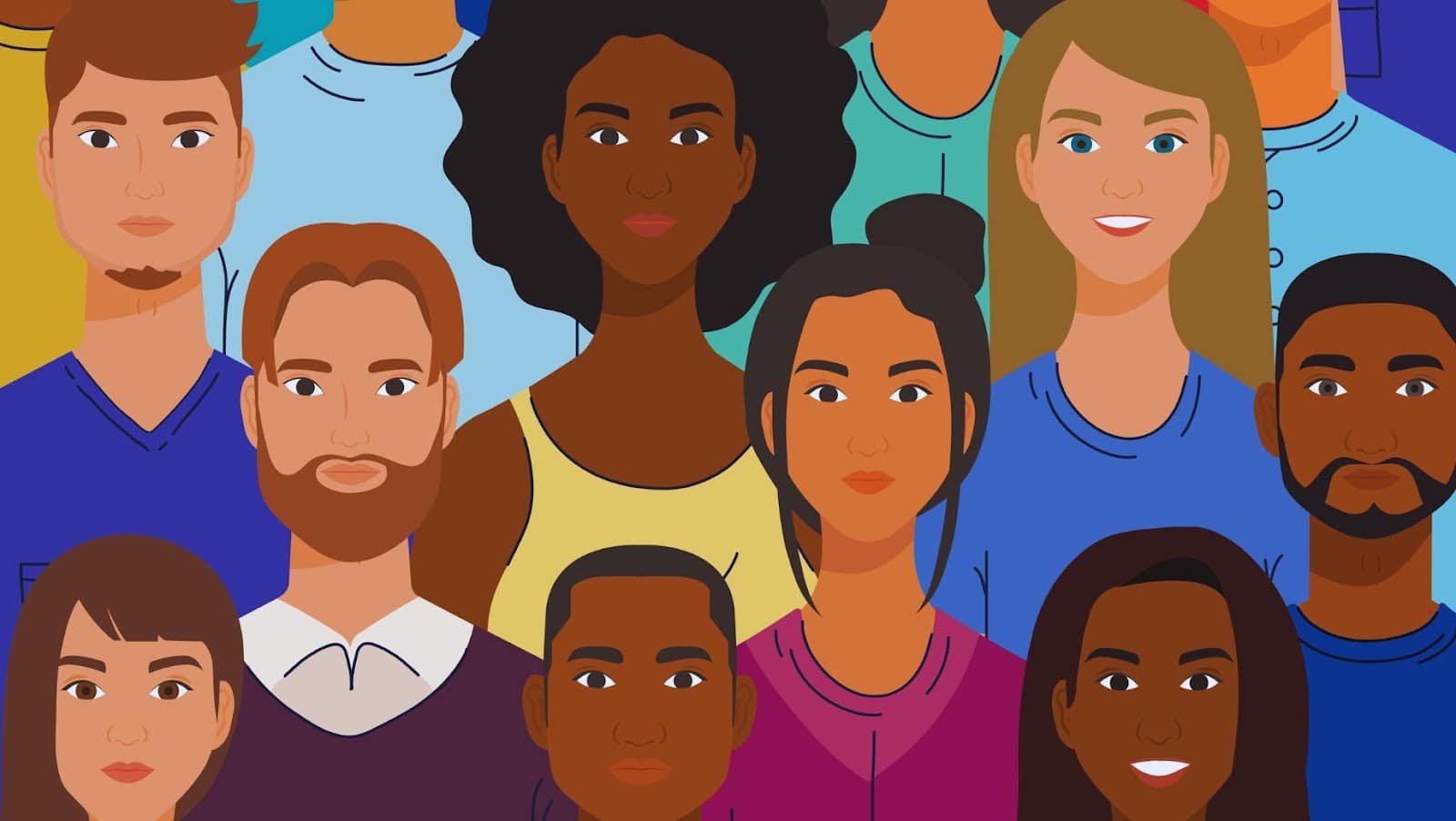
Cultural Sensitivity Definition: A Crucial Skill for Global Citizens
In an increasingly globalized world, we find ourselves living and working in multicultural environments more than ever. It’s a fascinating reality that calls for a deeper exploration of our individual and collective cultural sensitivity.
As a language course provider, we understand and appreciate the profound connection between language and culture. Effective communication with speakers of other languages extends beyond vocabulary and grammar – it also involves discovering their cultural beliefs and values. This comprehension paves the way for respectful dialogue, fostering successful relationships and collaboration. Therefore, we view it as our role to actively embrace this diversity, encourage intercultural awareness, and equip our language teachers to do the same in their lessons.
But what does cultural sensitivity mean in practice? To address this question, this article unpacks the cultural sensitivity definition, highlighting its importance, particularly in the realm of language learning. It illustrates how mastery of a new language can enhance intercultural understanding and promote empathy as a gateway to global citizenship.
Understanding cultural sensitivity definitions
To get a grasp on what it means to be culturally sensitive, let’s explore various definitions and aspects of this term.
Awareness and Acceptance
Firstly, cultural sensitivity is often defined as the awareness that cultural differences and similarities exist without assigning any value judgment. It requires understanding how these differences impact values, learning, and behaviour without asserting that one culture is superior to another.
The Stages of Cultural Sensitivity
A comprehensive framework to understand the evolution of cultural sensitivity is the Developmental Model of Intercultural Sensitivity (DMIS), proposed by Milton Bennett. This model outlines six phases: Denial, Defense, Minimization, Acceptance, Adaptation, and Integration. For instance, in the Acceptance stage, individuals acknowledge that a single behaviour can hold different meanings in different cultures. This stage is highlighted by the genuine interest and curiosity shown towards the experiences of other cultures.
Achieving Cultural Competence
Building upon the foundation of awareness and acceptance, cultural sensitivity is the stepping stone to achieving cultural competence. This mindset allows for effective communication and successful navigation within a culture different from one’s own. The concept is eloquently expressed by former UN Secretary-General Kofi Annan when he emphasizes that:
“Tolerance, intercultural dialogue, and respect for diversity are more essential than ever in a world where people are becoming more and more closely interconnected.”
The Role of Language in Cultural Sensitivity
Consider this, isn’t language an irresistible dance, each word twirling and spinning, steeped in profound cultural meaning? Every step in this dance, every nuanced phrase or gesture, speaks volumes about our worldviews, values, and opinions. When we take the time to learn and understand the language of others, it promotes cultural inclusivity and enhances intercultural communication. This is because language is a reflection of our cultural identity.
Sign up for our offers
Exclusive discounts on your course with Cactus directly on your inbox!
The intersection of language learning and cultural sensitivity
Picture language learning as an open door to a bustling global marketplace. Here, every new phrase you master is like acquiring a coin of a foreign currency, allowing you to engage, trade, and learn within that culture’s rich tapestry. This language acquisition, acting as a tool of discovery, brings to light the diverse cultural landscapes that define our shared human experience.
But how exactly does learning a foreign language unlock understanding and appreciation of cultural differences? Let’s explore this further.
How mastering a language enhances intercultural understanding
Intercultural understanding is often viewed as a natural offshoot of language learning, yet the mechanics of this process remain unclear. Essentially, as you acquire a foreign language, you simultaneously explore the cultural nuances it embodies. This enhances your ability to empathize and communicate across cultural boundaries.
Consider these transformative aspects:
- Gaining cultural insight: each learned phrase offers rich cultural insights.
- Broadening perspective: Viewing culture from an outsider’s lens enables fascinating comparisons.
- Overcoming stereotypes: stepping into another’s cultural shoes helps debunk stereotypes.
- Fostering Communication: shared language bridges cultural divides, enhancing intercultural dialogue.
Language learning as a bridge to cultural empathy
The link between cultural sensitivity and emotional intelligence is worth considering in more detail. By learning a new language, you immerse yourself in a culture different from your own, unlocking new traditions and embracing cultural values that otherwise might seem foreign to you. This exposure nurtures empathy, which is a vital component of emotional intelligence.
Here are some psychological benefits of learning a new language:
- Cultivates empathy: as you gain exposure to different cultural perspectives, you develop a greater sense of empathy towards people from diverse backgrounds.
- Boosts self-awareness: delving into another language encourages introspection about your own cultural norms and values.
- Strengthens emotional resilience: the challenges and triumphs of language learning contribute to emotional stability, a key aspect of emotional intelligence.
- Improves interpersonal skills: communication skills are honed as you learn to express thoughts and emotions in a different language.
- Increases cognitive flexibility: immersion in a new language can foster adaptability and mental agility, traits associated with high emotional intelligence.
- Encourages open-mindedness: understanding different cultural paradigms can promote acceptance and reduce prejudice.
In other words, by bridging language barriers, we unlock more than just new communication channels. We cultivate a deeper understanding of the world around us, which puts us in a better position to develop a thoughtful, balanced outlook on life.
Celebrating cultural differences: Language and diversity
“Learning another language is not only learning different words for the same things but learning another way to think about things.” – Flora Lewis
The journey into a new language paves the way to a more profound respect for cultural diversity, a significant stride towards celebrating the mosaic of our global society. This linguistic exploration promotes understanding of minority groups, effectively curbing cultural insensitivity. As language learners, we begin to appreciate that our differences are as crucial as our similarities, fostering a collective humanity rich in its variety. In fact, in the language learning space, celebrating cultural differences isn’t just an advantage – it’s an enriching necessity.
Cultural sensitivity: Your gateway to global citizenship?
As Psycholinguist Frank Smith insightfully remarked, “One language sets you in a corridor for life. Two languages open every door along the way.” Reflecting on this, it becomes evident that cultivating cultural sensitivity through language learning can indeed be your passport to global citizenship.
With each language learned, you broaden your horizon, expanding your understanding and appreciation of our interconnected world. Global citizenship encompasses this very sentiment – recognizing our shared humanity, challenging stereotypes, and engaging positively with diverse cultures. Are you ready to open every door along your corridor? Expand your cultural fluency with Cactus language courses today.
Ready to Start Learning?
About the Author

Dr. Anneke Schmidt is the founder of Skill & Care Content Solutions. She is an experienced content writer, editor, and educator with a demonstrated history of working in the research industry. Her main specialisms are Social Sciences and Education, with a particular focus on e-learning and professional development.

 French
French German
German Italian
Italian Spanish
Spanish Arabic
Arabic Cantonese
Cantonese Czech
Czech Croatian
Croatian Danish
Danish Dutch
Dutch English
English Greek
Greek Hebrew
Hebrew Hindi
Hindi Japanese
Japanese Korean
Korean Norwegian
Norwegian Polish
Polish Portuguese
Portuguese Russian
Russian Swedish
Swedish Thai
Thai Turkish
Turkish Ukrainian
Ukrainian